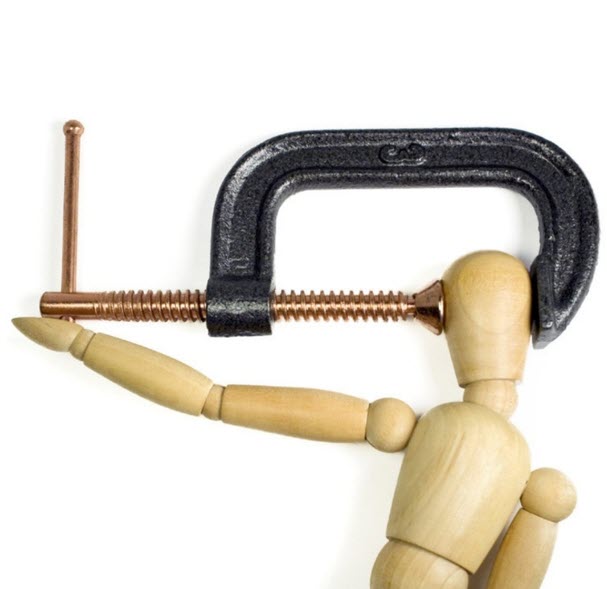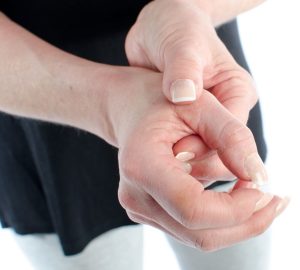What Is A Tension-Type Headache (TTH)?
Did you know it is estimated that over 3 billion people around the world will have experienced having a headache within the last year? There are many types of headaches, too many to be able to cover them all in one blog, so in this Body@Boronia blog post we will cover the headache that is most commonly experienced throughout the general population, known as the ‘Tension-Type Headache’ – or TTH.
WHO DOES IT AFFECT?
It is estimated that around 7 million Australians experience TTH, affecting approximately 42% of women and 36% of men. A person will commonly begin to experience them during teenage years and may experience a peak in headaches around their 40’s, as headaches begin to tail-off after this period in life. People who experience TTH on less than 15 days per month are classified as having ‘Episodic TTH’. Those experiencing them for more than 15 days per month are classified as having ‘Chronic TTH’.
KNOWING YOUR HEADACHE
Different types of headache come with different signs and symptoms. For TTH, there are some common things to look out for. These include:
- A tight band or ‘vice-like’ sensation of mild to moderate pain around the head
- Pain across both sides of the head
- Constant pain that may last anywhere from 30 minutes to several days
- Scalp, neck and shoulder tenderness accompanying your headache
- Difficulty concentrating or sleeping
- Restricted neck movements
- Depression and/or anxiety
Symptoms of TTH and migraine (another type of headache) may overlap slightly, but TTH are not usually described as throbbing, one-sided, or accompanied by visual disturbances, light sensitivity, nausea, vomiting, or worsening with activity; whereas migraines regularly are.
WHAT ARE THE CAUSES?
Despite the name, TTH are not always caused by tension or stress in a person’s life. TTH may be triggered by many things, including:
- Excessive frowning
- Teeth grinding or jaw-clenching (called ‘bruxism’)
- Postural strain from work or driving
- Exposure to bright lights or loud noise
- Prolonged reading
- Stress, anxiety and depression
- Excessive tiredness or fatigue
- Medication overuse
The last bullet point mentioned above is of particular importance, as the over-use of painkillers to treat TTH can ignite the onset of another type of headache known as ‘Chronic Daily Headaches’. These headaches are usually unaffected by pain medication and the person may also begin to experience migraines. Symptoms tend to be more severe than your average TTH.
CAN THEY BE TREATED?
Fortunately, there is a lot of help out there for such headaches. Usually the best course of action is to remove the trigger for your headache. This can be sometimes hard to work out, and we can help you identify what might be the root cause of your headaches. Your therapist can help to resolve those tight and sore muscles around the head, neck and shoulders by performing soft tissue massage, joint mobilisation and possibly manipulation techniques. They will also look at your posture when standing, sitting and lying down to try and highlight areas for improvement.
Other forms of treatment may include:
- A visit to the dentist if you grind or clench excessively
- Relaxation, breathing and stress-relieving techniques
- Improving sleep patterns and cycles
- Psychological therapy which may or may not include anti-depressant/anxiety medication
- A visit to your GP to discuss medication use, if the cause of your headache has been highlighted as potentially relating to the amount of medication you are taking – remember those chronic daily headaches we mentioned earlier?
So, please do not suffer headaches in silence. Speak out (it’s good to talk after all) and book an appointment with a trusted practitioner, or contact our Melbourne-based clinic for a friendly chat, we will try to help identify issues and steer you in the right direction to start the journey of getting rid of any headaches.
References
- World Health Organisation. 2019. Headache Disorders. [Online]. [Accessed 9 May 2019]. Available from: https://www.who.int/news-room/fact-sheets/detail/headache-disorders
- Headache Australia. 2018. Headache Types – Tension-type Headache. [Online]. [Accessed 9 May 2019]. Available from: https://headacheaustralia.org.au/headachetypes/tension-type-headache/
- International Headache Society. 2019. Tension-type Headache. [Online]. [Accessed 9 May 2019]. Available from: https://www.ichd-3.org/2-tension-type-headache/
- The Migraine Trust. 2019. Tension-type Headache. [Online]. [Accessed 9 May 2019]. Available from: https://www.migrainetrust.org/about-migraine/types-of-migraine/other-headache-disorders/tension-type-headache/
- Longmore, M. et al. 2014. Oxford Handbook of Clinical Medicine. Oxford: Oxford University Press
- Harvard Health Publishing. 2018. Tension Headache. [Online]. [Accessed 9 May 2019]. Available from: https://www.health.harvard.edu/a_to_z/tension-headache-a-to-z







